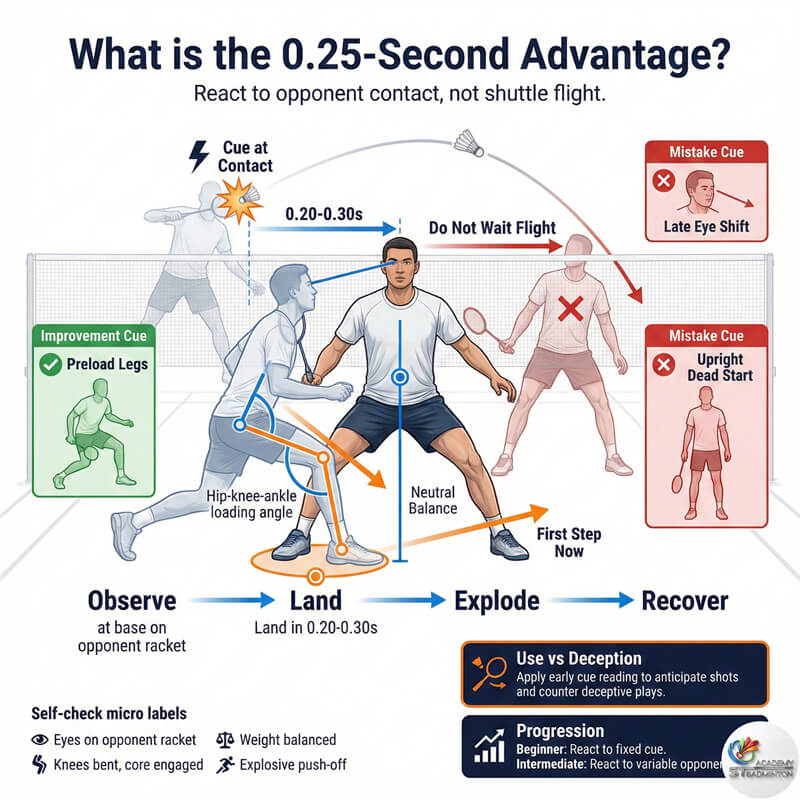Welcome to the ST Badminton Academy in Malaysia! Are you a badminton player who struggles with maintaining focus and confidence during matches? Do nerves often get the best of you, causing your performance to suffer? If so, it’s time to strengthen your mental game in badminton.
While physical training is crucial for success on the court, having a strong mindset can make all the difference. In this article, we’ll provide expert tips and strategies for improving your mental toughness and overall performance in badminton.
Whether you’re an experienced player or just starting out, these techniques will help you stay focused, motivated, and confident throughout every match. So let’s dive in and take your game to the next level!
Understanding Your Opponent in Badminton
As a badminton player, you are in a constant battle against your opponent. It’s like standing on opposite sides of a river and trying to cross it while the currents change constantly. To win this game, you need to have an accurate understanding of your opponent.
Reading body language is crucial when playing any sport, especially badminton. You can learn so much about their mood, level of confidence, and even what shot they might play next by observing their stance and movements.
Dealing with nerves during a match can be challenging, but practicing mindfulness techniques such as deep breathing or visualization can help calm your mind and improve focus. Studying game footage of opponents also provides valuable insights into their style of play and weaknesses that you could exploit.
Mastering focus means staying present in each moment without getting distracted by past mistakes or future outcomes. In essence, understanding your opponent goes beyond analyzing their performance on the court; it involves being aware of how they think and feel during the game.
This knowledge gives you an edge over them because you know exactly how to take advantage of their weaknesses while minimizing yours. So keep these tips in mind every time you step onto the badminton court!
Visualization Techniques
Visualizing success is a powerful tool to strengthen your mental game in badminton. Before a match, it’s crucial to set specific goals for yourself and visualize achieving them. This technique helps you stay focused on the task at hand and boosts your confidence.
To make sure that you’re visualizing effectively, try following these tips:
- Close your eyes and imagine every detail of what success looks like.
- Use positive thinking and affirmations to help reinforce your visualization.
- Incorporate pre-match preparation into your visualizations, such as warming up or strategizing with your coach.
By using these techniques regularly, you’ll train your mind to focus on achieving success rather than dwelling on potential failures.
Visualization can also help reduce anxiety before matches by giving you a sense of control over the outcome.
Staying mentally strong during a badminton match requires more than just physical skill – it takes mental endurance too. By incorporating visualization techniques into your training routine, you can develop a stronger mindset that will benefit you both on and off the court.
Remember: always stay goal-oriented, practice positive thinking, and prepare thoroughly before each match.
Strategies For Concentration
After visualizing your success in badminton, it’s time to move on to strategies for concentration.
Like a tightrope walker, you must balance and focus on each step while keeping an eye on the final destination.
Focusing on goals is crucial but managing stress is just as important.
Improving focus requires practice and patience.
Start by setting small achievable targets that lead up to larger ones. This helps build momentum and keeps you motivated.
Handling pressure can be tough, but remember that everyone experiences it differently.
Analyzing mistakes instead of dwelling on them allows for growth and improvement.
By acknowledging what went wrong, you can adjust accordingly and avoid making the same mistake twice.
Relaxation Techniques For Tension
When it comes to badminton, tension can be a major hindrance. One of the best ways to combat this is through relaxation techniques like calming breathing exercises or meditation.
These practices help you center your mind and body, allowing you to let go of any negative thoughts or emotions that may be holding you back.
Another important aspect of managing tension is emotional control. This means being aware of your feelings and learning how to regulate them in productive ways.
Positive thinking is also key – focusing on what’s going well rather than dwelling on mistakes can help improve mental clarity and resilience.
By incorporating these strategies into your training regimen, you’ll be better equipped to handle pressure and perform at your best when it counts.
Building Self-Confidence
Staying positive is key to building self-confidence in badminton. According to our badminton coach, it’s important to believe in yourself and your abilities, even when faced with challenges or setbacks.
By focusing on the positives and not dwelling on mistakes, you can maintain a confident mindset that will help you perform at your best.
Dealing with failure is also an important aspect of building self-confidence. Instead of letting failures bring you down, use them as opportunities for growth and learning.
Overcoming fear is another way to build resilience and confidence. Don’t be afraid to take risks or step out of your comfort zone – by facing your fears head-on, you’ll become more confident in yourself and your abilities.
Remember to practice emotional control during matches too, as staying calm under pressure will improve your overall performance.
With these techniques, you’ll be able to develop strong mental fortitude that will serve you well both on and off the court.
Strengthening Self-Discipline
Let’s talk about how we can develop a routine and set goals to strengthen our self-discipline in badminton. We’ll need to be disciplined to make sure we stick to our routines and reach our goals!
Developing A Routine
Other than choosing a good racket, also remember to choose the best badminton resting in Malaysia. Improving your mental game in badminton involves strengthening self-discipline, and one effective way to achieve this is by developing a routine.
By prioritizing practice sessions regularly, you can develop good habits that will help improve your overall performance on the court.
It’s also essential to master mechanics such as footwork, grip, and stroke technique through consistent practice.
Tracking progress by keeping a record of your achievements and areas for improvement will enable you to stay motivated toward achieving your goals.
Remember that success comes from dedication and discipline; incorporating a routine into your training regimen is an excellent approach to building both of these qualities.
Setting Goals
Now that we’ve talked about the importance of developing a routine to improve your mental game, let’s focus on another crucial aspect: setting goals.
Creating milestones and tracking progress are vital components in strengthening self-discipline as they help you stay accountable for achieving your objectives.
By setting specific, measurable, attainable, relevant, and time-bound (SMART) goals, you can work towards improving different aspects of your badminton game while keeping track of your progress.
Additionally, using mental rehearsals is an effective way to visualize success and reinforce good habits before stepping onto the court.
Incorporating goal-setting techniques into your training regimen will not only enhance your performance but also provide a sense of direction and purpose towards achieving long-term success.
Improving Decision-Making Skills
Strengthening self-discipline is a crucial aspect of improving your mental game in badminton. By setting goals and sticking to them, you can develop the discipline needed to succeed on the court. Now that you have mastered this skill, it’s time to focus on improving your decision-making abilities.
To make better decisions on the court, start by analyzing mistakes made during previous games. Take note of what went wrong and come up with strategies to avoid making similar errors in the future.
Mental rehearsal is also an effective way to improve your decision-making skills – visualize yourself making successful shots and executing winning strategies.
In addition, game planning can help you stay focused and make informed decisions throughout each match. Use positive self-talk to boost confidence and reinforce good decision-making habits.
With practice and determination, you’ll be able to make split-second decisions with ease and precision.
Improving your decision-making skills takes time and effort, but incorporating these techniques into your training regimen will pay off in the long run. Remember to stay focused, analyze mistakes, use positive self-talk, engage in mental rehearsals, and plan ahead for each match. These tools will give you the edge needed to take your badminton game to new heights.
Adapting To Different Playing Styles
To excel in badminton, it is essential to develop self-awareness and recognize your emotions during a game. When you understand how you feel under different circumstances, such as when facing an opponent with a particular playing style, you’ll be better equipped to manage stress and focus attention. It’s crucial not only to know what works for you but also to understand the strengths and weaknesses of your opponents.
Here are three ways cultivating motivation can help adapt to different playing styles:
- Stay positive: Keep negative thoughts at bay by focusing on the present moment.
- Visualize success: Imagine yourself executing techniques flawlessly and winning points confidently.
- Learn from mistakes: Analyze past games to identify areas where improvements need to be made.
In conclusion, adapting to different playing styles requires mental strength that goes beyond just physical abilities. By developing self-awareness, recognizing emotions, focusing attention, managing stress, and cultivating motivation through these tips, you will find yourself thriving even against difficult opponents.
Remember always to keep a positive attitude towards the game and strive for improvement consistently.
Developing Mental Toughness
Coping with pressure can be really difficult, but it’s essential for becoming mentally tough in badminton. Developing a strong sense of self-belief is also key for strengthening your mental game.
Coping With Pressure
When it comes to badminton, maintaining focus is essential in order to perform at your best. Coping with pressure can be difficult, but managing emotions and dealing with fear are key components of developing mental toughness.
It’s important to acknowledge the potential for pressure and anxiety before a match or during high-stakes moments, but not let them overwhelm you. Deep breathing exercises and positive self-talk can help calm nerves and keep you centered on the task at hand.
Remember that mistakes happen, even to top athletes, so learn from them and move forward rather than dwelling on them. By staying present in the moment and trusting your abilities, you can successfully cope with any pressure thrown your way.
Developing Self-Belief
Now that we’ve talked about coping with pressure, let’s move on to another aspect of developing mental toughness: developing self-belief.
Identifying triggers that may cause doubts and negative self-talk is the first step in building confidence. Once you recognize these triggers, confront them head-on by replacing negative thoughts with positive ones.
Cultivating optimism and a growth mindset can also help boost your belief in yourself and your abilities. Remember, developing self-belief takes time and effort, but it’s an essential component of mental toughness for any athlete looking to perform at their best.
Overcoming A Setback
Developing mental toughness is just the beginning to achieving success in badminton. However, setbacks are inevitable and can hinder progress towards your goals. As the saying goes, ‘It’s not how many times you fall down, but how many times you get back up.’
Acknowledging failure is essential when it comes to overcoming a setback. It’s important to recognize that everyone experiences failures at some point and it’s okay to have setbacks as long as you learn from them. Recognizing self-doubt is also crucial because it can lead to negative thoughts that can affect performance on the court.
To overcome this, set realistic goals for yourself and celebrate small victories along the way. Creating positive affirmations can help replace negative thoughts with more constructive ones. For example, instead of thinking ‘I’ll never be able to improve my backhand,’ try replacing it with ‘I’m working hard every day to improve my backhand and I will see progress soon.’
Additionally, surrounding yourself with supportive teammates or coaches who encourage growth rather than criticize mistakes can make all the difference. In summary, experiencing setbacks in badminton is normal and expected. Acknowledging failure, recognizing self-doubt, setting realistic goals, creating positive affirmations, and replacing negative thoughts are all vital tools in overcoming these obstacles.
Remember that each setback provides an opportunity for growth and improvement in both your game and mental strength.
Frequently Asked Questions

How Can I Improve My Mental Game In Badminton If I Don’t Have Access To A Coach Or Expert Advice?
Improving your mental game in badminton can prove to be a daunting task, especially if you don’t have access to professional advice or coaching. However, there are several ways through which you can strengthen your mindset and enhance your performance on the court.
Visualization techniques allow you to imagine yourself executing successful shots, while mental rehearsal helps you mentally practice different scenarios that may occur during a game. Additionally, relaxation techniques such as deep breathing exercises and meditation can help calm nerves and alleviate anxiety before matches.
Psychological preparation involves setting realistic goals for yourself and focusing on positive self-talk rather than negative thoughts. By incorporating these strategies into your training regimen, you can improve your mental game in badminton even without expert guidance.
What Are Some Common Mental Mistakes That Badminton Players Make During A Match?
In the heat of a badminton match, it’s easy for self-doubt to creep in and sabotage your performance. But by mastering positive thinking, managing pressure, and utilizing visualization techniques as part of your mental preparation, you can avoid common mistakes that players make on the court.
From dwelling too much on past errors to letting nerves get the best of you during critical moments, there are several ways that your mindset can hold you back from playing your best game.
However, with some simple tweaks to your approach and a commitment to mental training, you can stay sharp and focused throughout every match.
Can Meditation Or Mindfulness Practices Help Improve My Mental Game In Badminton?
Meditation and mindfulness practices have been known to help athletes improve their mental game in various sports, including badminton.
Incorporating visualization techniques, emotional control, pre-match preparation, self-talk strategies, and mental rehearsal can all contribute to enhancing one’s performance on the court.
By practicing these techniques regularly, players can learn to maintain focus and stay calm under pressure during matches.
Additionally, taking time to mentally prepare before a match can help alleviate anxiety and increase confidence levels.
So if you’re looking to up your game on the court, incorporating meditation or mindfulness practices into your routine may be worth considering.
How Important Is Physical Fitness In Relation To Mental Toughness In Badminton?
How important is physical fitness in relation to mental toughness in badminton?
Maintaining a positive attitude, practicing mental imagery, strategic planning, game analysis, and emotional control are all essential aspects of developing your mental game.
However, it’s crucial not to overlook the significance of being physically fit when it comes to improving your overall performance on the court.
A strong body supports a strong mind, so incorporating regular exercise into your training regime can help you stay focused during matches and perform at your best for longer periods.
By combining both physical and mental preparation techniques, you’ll be well on your way to achieving success in badminton.
What Are Some Strategies For Staying Focused And Motivated During A Long And Grueling Match?
‘What are some strategies for staying focused and motivated during a long and grueling match?’
This is a common question that many athletes ask themselves when facing tough opponents. To maintain energy levels, it’s important to stay hydrated and consume nutritious foods before the game.
Visualizing success and setting realistic goals can also help keep you motivated throughout the match. Positive self-talk is another useful technique to manage stress and maintain focus on the court.
Remembering to breathe deeply between points can also calm nerves and reduce anxiety. Incorporating these simple strategies into your routine can help strengthen your mental game in badminton, allowing you to perform at your best even under pressure.
Learn to Improve Mental Game from Professional Badminton Coach in Malaysia
In conclusion, improving your mental game in badminton is vital if you want to succeed on the court. Even without access to a coach or expert advice, there are still ways that you can work on this aspect of your game.
Some common mistakes that players make include letting their emotions get the best of them and not staying focused during long matches. One way to improve your mental toughness is by practicing meditation or mindfulness regularly. These practices can help calm your mind and allow you to stay present at the moment while playing.
Additionally, physical fitness plays an important role in developing mental strength. When your body feels strong and healthy, it’s easier to maintain focus and motivation throughout a match. Finally, it’s essential to have strategies for staying focused and motivated during long games.
This could mean setting small goals for yourself throughout the match or finding ways to keep yourself engaged mentally, such as focusing on specific shots or techniques. As they say, a picture is worth a thousand words,’ so visualizing success can also be a helpful tool for maintaining motivation and achieving victory on the court.

Back to the training home page.



